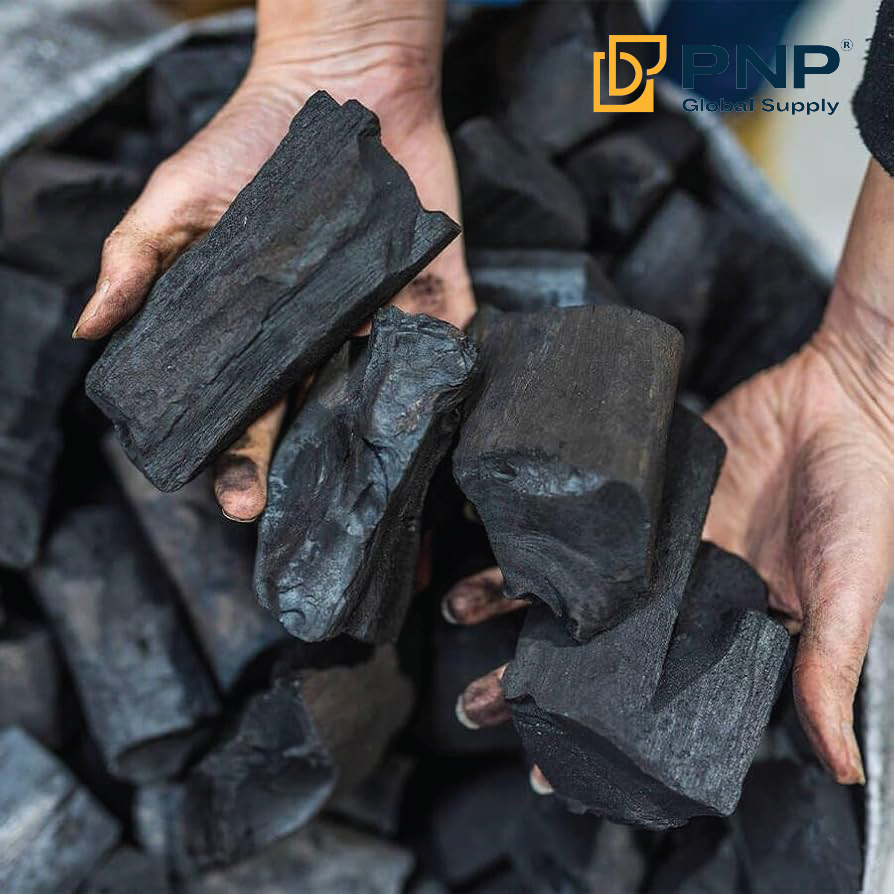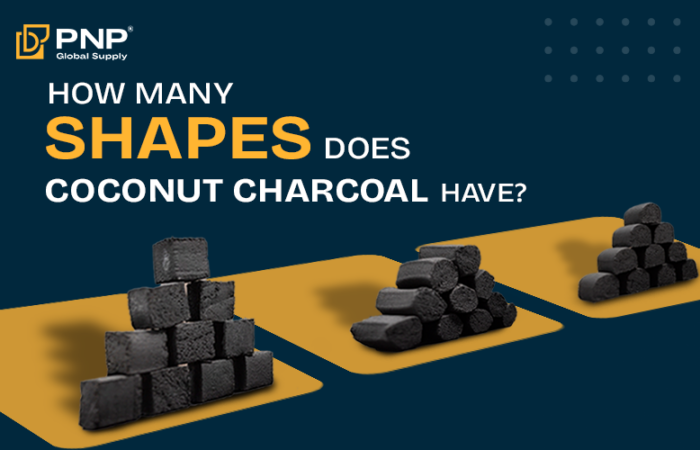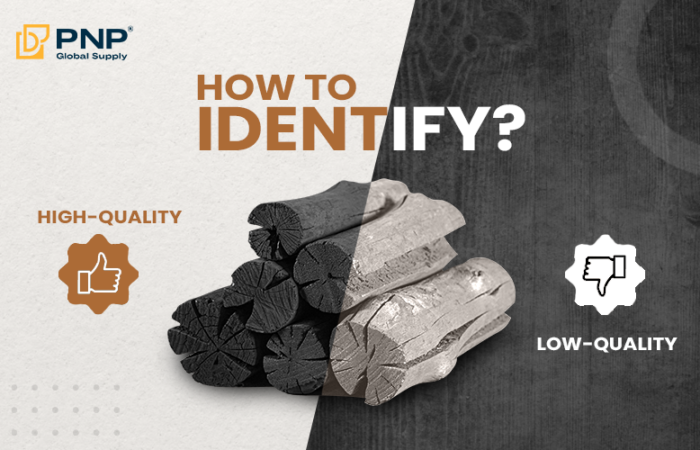When it comes to exporting charcoal, ensuring product quality during transportation is one of the most critical challenges. Charcoal is a natural and porous material that easily absorbs moisture, loses heat value, and can even pose a risk of ignition if not handled properly. That’s why strict standards for charcoal delivery — from packaging to loading and shipping — are essential to guarantee product safety and maintain consistency upon arrival.
With the growth of international trade, especially through sea freight shipping, charcoal exporters must pay extra attention to how their goods are packaged, stored, and shipped across long distances. Following the right procedures helps prevent product damage, control costs, and build a strong reputation in the global charcoal market.

Why Quality Control Matters in Charcoal Delivery
The quality of charcoal can easily deteriorate during long shipping periods if the delivery process is not properly controlled. Exposure to humidity, unstable stacking, or poor container ventilation can lead to moisture absorption, mold, or broken pieces — all of which reduce the charcoal’s burning performance.
Implementing strict quality control in charcoal delivery ensures that the product maintains its original calorific value and appearance. For importers and distributors, consistent product quality helps build trust and long-term business relationships.
In addition, high-quality charcoal packages play a key role in protecting the product from external factors during shipment. Using strong, moisture-proof materials minimizes the risk of contamination and helps exporters comply with international shipping standards.

Packaging Standards for Charcoal Export
Proper packaging is the foundation of safe and efficient charcoal delivery. Exporters often use multi-layer PP or PE bags with an inner liner to prevent moisture absorption. These charcoal packages must be tightly packed, compressed, and sealed to maintain stability throughout the journey.
Before shipment, each bag should be weighed to ensure consistency and avoid unbalanced loads inside the container. The charcoal should also be neatly stacked and tightly secured, reducing movement during transport and preventing bag rupture.
Another common practice in professional charcoal export is container lining (lồng công) — adding protective layers along the container walls and floor to prevent contact with metal surfaces and minimize condensation.
Standard packaging options include 5kg, 10kg, 15kg, and 20kg retail bags, as well as jumbo bags (500–1000kg) for bulk orders. Choosing the right size not only enhances convenience for customers but also helps maintain stable container shipping rates by maximizing space efficiency.
If you want to learn more about proper charcoal packaging standards for export, check out the following article: TOP 4 TYPES OF CHARCOAL PACKAGING FOR EXPORT
Container Preparation and Loading Process
To ensure safe sea freight shipping, preparing the container properly before loading charcoal is crucial. The container must be completely clean, dry, and free from oil, chemicals, or any residues that may affect the charcoal’s quality.
A layer of kraft paper or wooden pallets should be placed on the floor to prevent direct contact between the charcoal and the container surface. During loading, workers must stack bags tightly, use belts or wooden braces to secure them, and ensure no empty spaces are left inside. This prevents the load from shifting during transportation.
The charcoal ship should be monitored for proper ventilation, as stagnant air or trapped moisture can cause condensation inside containers, especially in long-distance shipping. Sealing and labeling must also comply with export and safety regulations, indicating the product type, weight, origin, and handling instructions.
Safety Measures and Dangerous Goods Compliance
Although charcoal is not always classified under dangerous goods shipping, it still requires specific safety measures due to its combustible nature. Freshly produced charcoal can retain heat or gases that might cause ignition if not cooled and stored properly.
To prevent this, exporters must ensure the charcoal’s moisture content remains below 5% and that there are no remaining embers or hot particles before packing. Containers should be well-ventilated and maintained at stable temperatures throughout the sea freight shipping process.
Compliance with international safety standards (such as IMO and UN regulations) is essential for companies exporting charcoal globally. Clear labeling, documentation, and adherence to inspection protocols reduce risks and help avoid shipment delays or rejections at ports.
Sea Freight Shipping and Cost Optimization
Sea freight shipping is the most common method for exporting charcoal, especially in large volumes. It offers cost efficiency, scalability, and reliability compared to air or land transportation. However, optimizing container shipping rates requires careful planning and standardization.
Factors that affect shipping costs include packaging density, container type, port selection, and route distance. By ensuring every container is fully loaded with compact, evenly distributed charcoal packages, exporters can minimize wasted space and avoid extra charges for uneven weight distribution.
Working with experienced freight forwarders or logistics companies helps exporters choose suitable routes, negotiate better shipping terms, and manage customs documentation smoothly. Additionally, maintaining consistent export schedules can secure more favorable container shipping rates in the long run.
Final Quality Inspection Before Shipment
Before the charcoal is shipped, a final inspection is carried out to verify that all quality and safety standards are met. This step includes:
- Randomly checking bags for uniform size and dryness.
- Measuring carbon content, ash percentage, and calorific value.
- Ensuring no dust or debris contaminates the product.
The inspection results are documented in a Quality Control (QC) report for each shipment, which helps both exporters and buyers track performance over time. This transparency reinforces trust and ensures compliance with import requirements in various markets.
Tips for Reliable Charcoal Exporting Partners
Choosing the right partner is just as important as maintaining product quality. Reliable suppliers not only focus on production but also follow international standards in charcoal delivery and sea freight shipping.
When selecting a supplier, look for:
- Proven experience in exporting charcoal to multiple destinations.
- Certifications such as ISO or SGS for product quality and safety.
- A clear process for packaging, inspection, and logistics management.
Working with a professional exporter ensures consistent delivery schedules, transparent pricing, and long-term support in optimizing container shipping rates and handling documentation efficiently.
At PNP Charcoal, we take pride in being a trusted partner for global charcoal importers. With years of experience in exporting charcoal to markets across Asia, the Middle East, and Europe, PNP ensures every shipment meets strict international standards. From premium-quality production to professional charcoal delivery and sea freight shipping, our team focuses on safety, consistency, and cost efficiency.
Whether you’re looking for reliable supply, transparent pricing, or expert logistics support, PNP Charcoal is committed to helping your business grow sustainably.
Visit PNP CHARCOALto explore our export services and discover how we can deliver quality charcoal to your destination worldwide.

Conclusion
Ensuring quality during charcoal delivery is not just about packaging—it’s about maintaining control over every stage, from production to sea freight shipping. By following proper standards in packaging, container preparation, and safety compliance, exporters can prevent losses, reduce risks, and uphold their brand’s reputation in the international market.
For importers, partnering with a trusted charcoal supplier means receiving consistent, high-quality products every time, regardless of distance or destination.
If you’re looking for a reliable partner that guarantees safe, efficient, and cost-effective charcoal delivery by sea, contact PNP Charcoal today — your trusted expert in exporting premium-quality charcoal worldwide.
________________________________
Contact us for more information
Facebook: PNP Charcoal
Instagram: PNP Charcoal
Email: info@pnpglobalsupply.com




